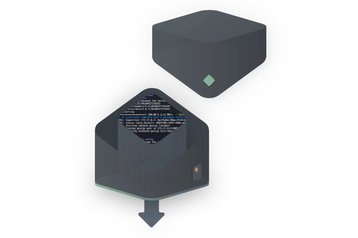The darling of the DevOps movement Chef Software has launched a new open source project called Habitat, aiming to improve management of applications as they travel between various runtime environments.
The Habitat format brings together everything that an application needs to run throughout its lifecycle. Packaged apps are completely independent of supporting infrastructure and behave consistently in any runtime, whether bare metal, virtualized, based on application containers, on-premise or in the public cloud.
“While we continue to see organizations succeed with DevOps, the complexity crisis that exists from an ongoing application management perspective continues to be a challenge,” said Joe Pynadath, GM and VP of EMEA at Chief.
“Habitat marks our next evolution and will provide an absolutely transformative, paradigm shift to how our community and customers can approach application management and automation.”
Have apps, will travel
Chef (formerly Opscode) was founded in 2008 with headquarters in Seattle. The start-up develops software that automates configuration of IT resources, considerably reducing time spent on maintenance and deployment of new equipment like servers, storage arrays or load balancers. It depends on reusable definitions known as recipes, which can be shared among the community members.
Chef’s latest project expands this functionality to include not just infrastructure, but application automation too. According to the company, applications packaged with Habitat have the intelligence to “self-organize” and “self-configure”.
The deployment consists of two elements. The fist is Habitat packages, which include individual apps and their build dependencies, run-time dependencies, configuration files and security policies. The second is the Habitat supervisor, which runs application packages with awareness of their peer relationships.
This model allows the application to be independent of any particular infrastructure setup, and enables IT staff to quickly move legacy apps to modern environments. Chef adds that Habitat was designed to augment application containers based on technologies like Docker or Mesos, rather than replace them.
The software is available as an open source project under the Apache 2.0 license. Chef will offer commercial support for Habitat through its Chef Enterprise subscription, and ensure seamless integration between Habitat and Chef Delivery.
“Traditional enterprise applications have limited proliferation into the hybrid cloud. By making it easy to build applications that run anywhere, the value of hybrid cloud platforms, containers, and their management can be fully realized,” said Jonathan Donaldson, vice president of Software Defined Infrastructure for Data Center Group at Intel.
“Habitat is an important step forward in enabling enterprise IT to fully benefit from the portability and efficiency of cloud computing.”

